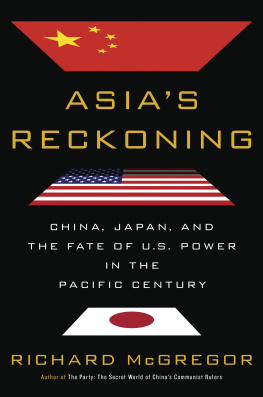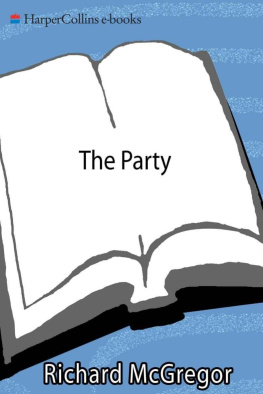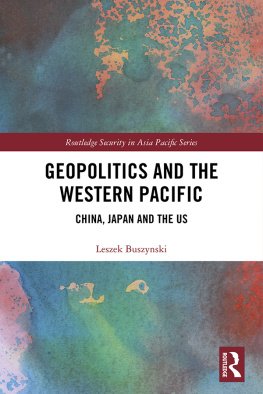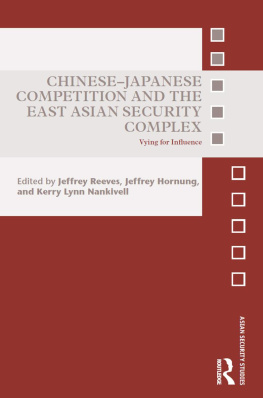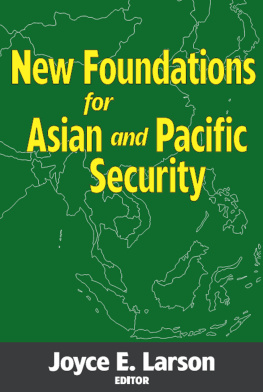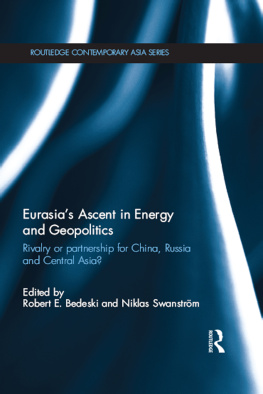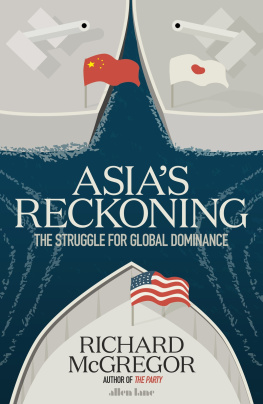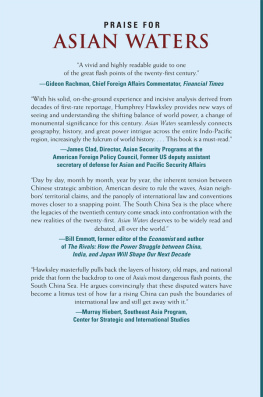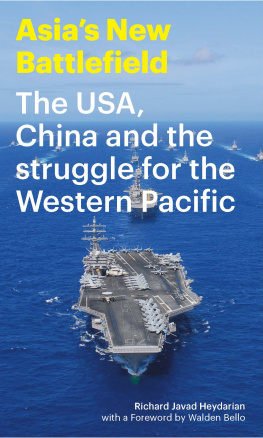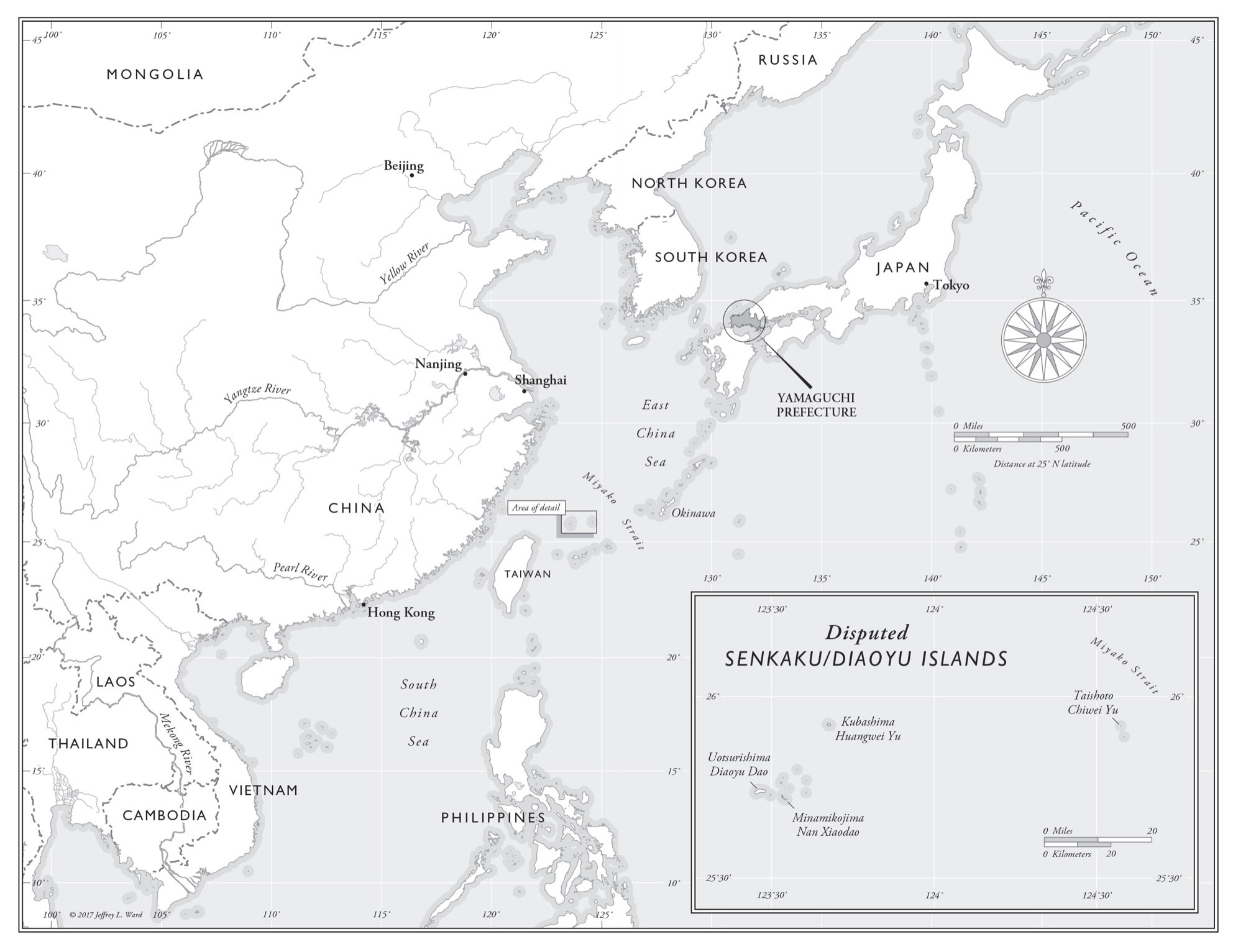Richard McGregor - Asia’s Reckoning: China, Japan, and the Fate of U.S. Power in the Pacific Century
Here you can read online Richard McGregor - Asia’s Reckoning: China, Japan, and the Fate of U.S. Power in the Pacific Century full text of the book (entire story) in english for free. Download pdf and epub, get meaning, cover and reviews about this ebook. year: 2017, publisher: Viking, genre: Politics. Description of the work, (preface) as well as reviews are available. Best literature library LitArk.com created for fans of good reading and offers a wide selection of genres:
Romance novel
Science fiction
Adventure
Detective
Science
History
Home and family
Prose
Art
Politics
Computer
Non-fiction
Religion
Business
Children
Humor
Choose a favorite category and find really read worthwhile books. Enjoy immersion in the world of imagination, feel the emotions of the characters or learn something new for yourself, make an fascinating discovery.
- Book:Asia’s Reckoning: China, Japan, and the Fate of U.S. Power in the Pacific Century
- Author:
- Publisher:Viking
- Genre:
- Year:2017
- Rating:4 / 5
- Favourites:Add to favourites
- Your mark:
Asia’s Reckoning: China, Japan, and the Fate of U.S. Power in the Pacific Century: summary, description and annotation
We offer to read an annotation, description, summary or preface (depends on what the author of the book "Asia’s Reckoning: China, Japan, and the Fate of U.S. Power in the Pacific Century" wrote himself). If you haven't found the necessary information about the book — write in the comments, we will try to find it.
A shrewd and knowing book. Robert D. Kaplan, The Wall Street Journal
A compelling and impressive read. The Economist
Skillfully crafted and well-argued. Jeffrey Wasserstrom, Financial Times
An excellent modern history. . . . provides the context needed to make sense of the regions present and future. Joyce Lau, South China Morning Post
A history of the combative military, diplomatic, and economic relations among China, Japan, and the United States since the 1970sand the potential crisis that awaits them
Richard McGregors Asias Reckoning is a compelling account of the widening geopolitical cracks in a region that has flourished under an American security umbrella for more than half a century. The toxic rivalry between China and Japan, two Asian giants consumed with endless history wars and ruled by entrenched political dynasties, is threatening to upend the peace underwritten by Pax Americana since World War II. Combined with Donald Trumps disdain for Americas old alliances and Chinas own regional ambitions, east Asia is entering a new era of instability and conflict. If the United States laid the postwar foundations for modern Asia, now the anchor of the global economy, Asias Reckoning reveals how that structure is falling apart.
With unrivaled access to archives in the United States and Asia, as well as to many of the major players in all three countries, Richard McGregor has written a tale that blends the tectonic shifts in diplomacy with bitter domestic politics and the personalities driving them. It is a story not only of an overstretched America, but also of the rise and fall and rise of the great powers of Asia. The about-turn of Japanfrom a colossus seemingly poised for world domination to a nation in inexorable decline in the space of two decadeshas few parallels in modern history, as does the rapid rise of Chinaa country whose military is now larger than those of Japan, South Korea, Taiwan and southeast Asias combined.
The confrontational course on which China and Japan are set is no simple spat between neighbors: the United States would be involved on the side of Japan in any military conflict between the two countries. The fallout would be an economic tsunami, affecting manufacturing centers, trade routes, and political capitals on every continent. Richard McGregors book takes us behind the headlines of his years reporting as the Financial Timess Beijing and Washington bureau chief to show how American power will stand or fall on its ability to hold its ground in Asia.
Richard McGregor: author's other books
Who wrote Asia’s Reckoning: China, Japan, and the Fate of U.S. Power in the Pacific Century? Find out the surname, the name of the author of the book and a list of all author's works by series.

